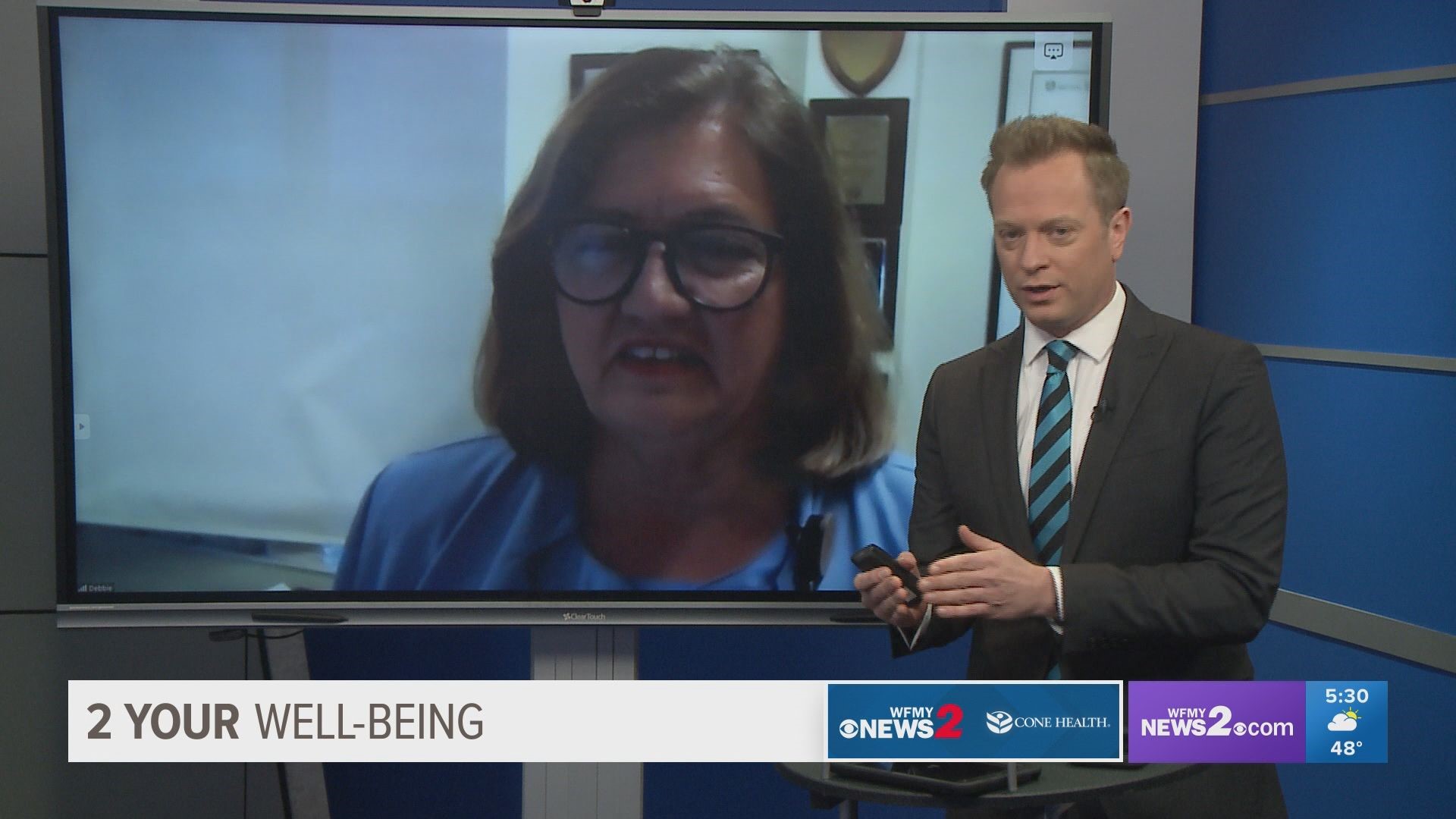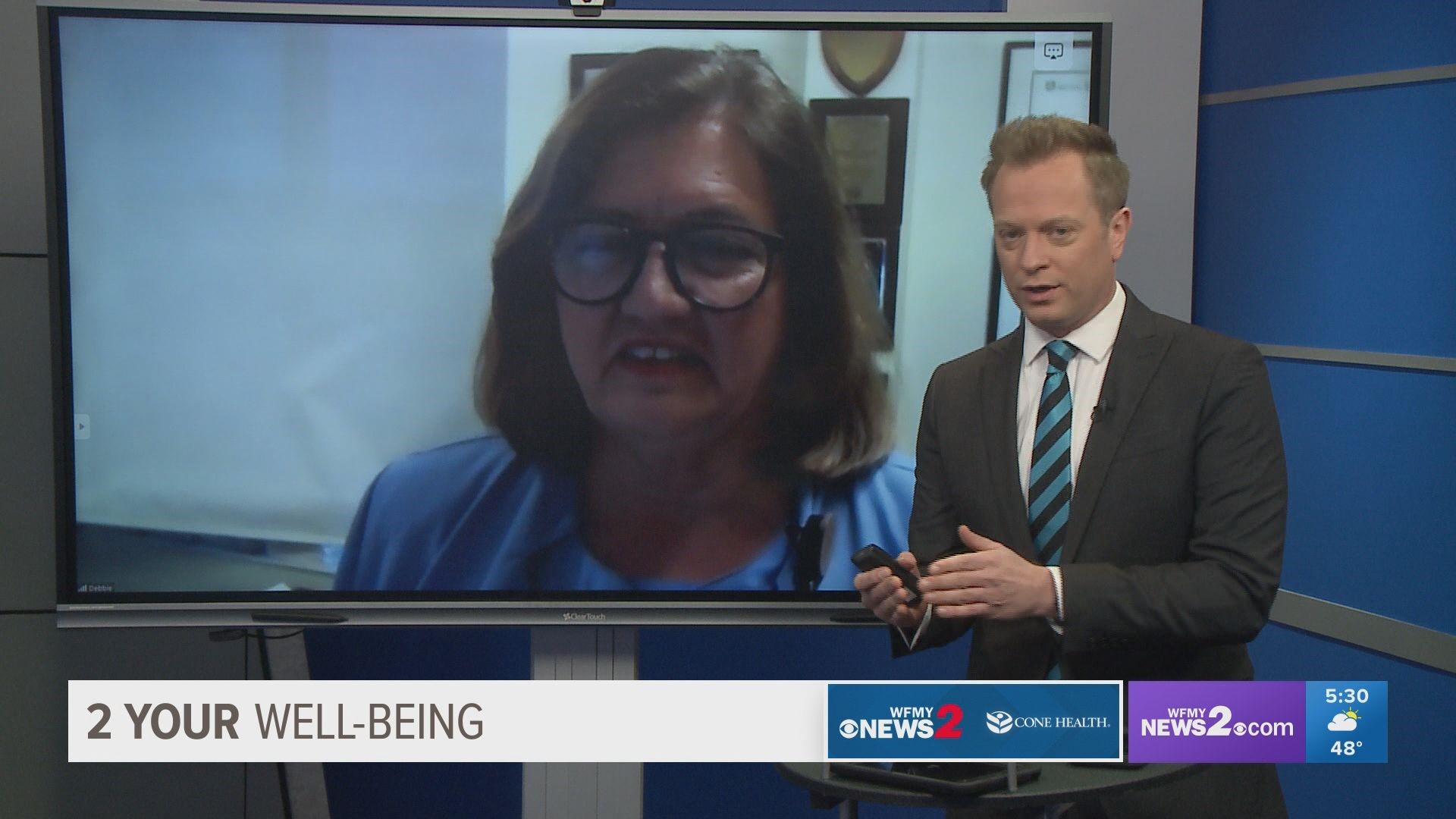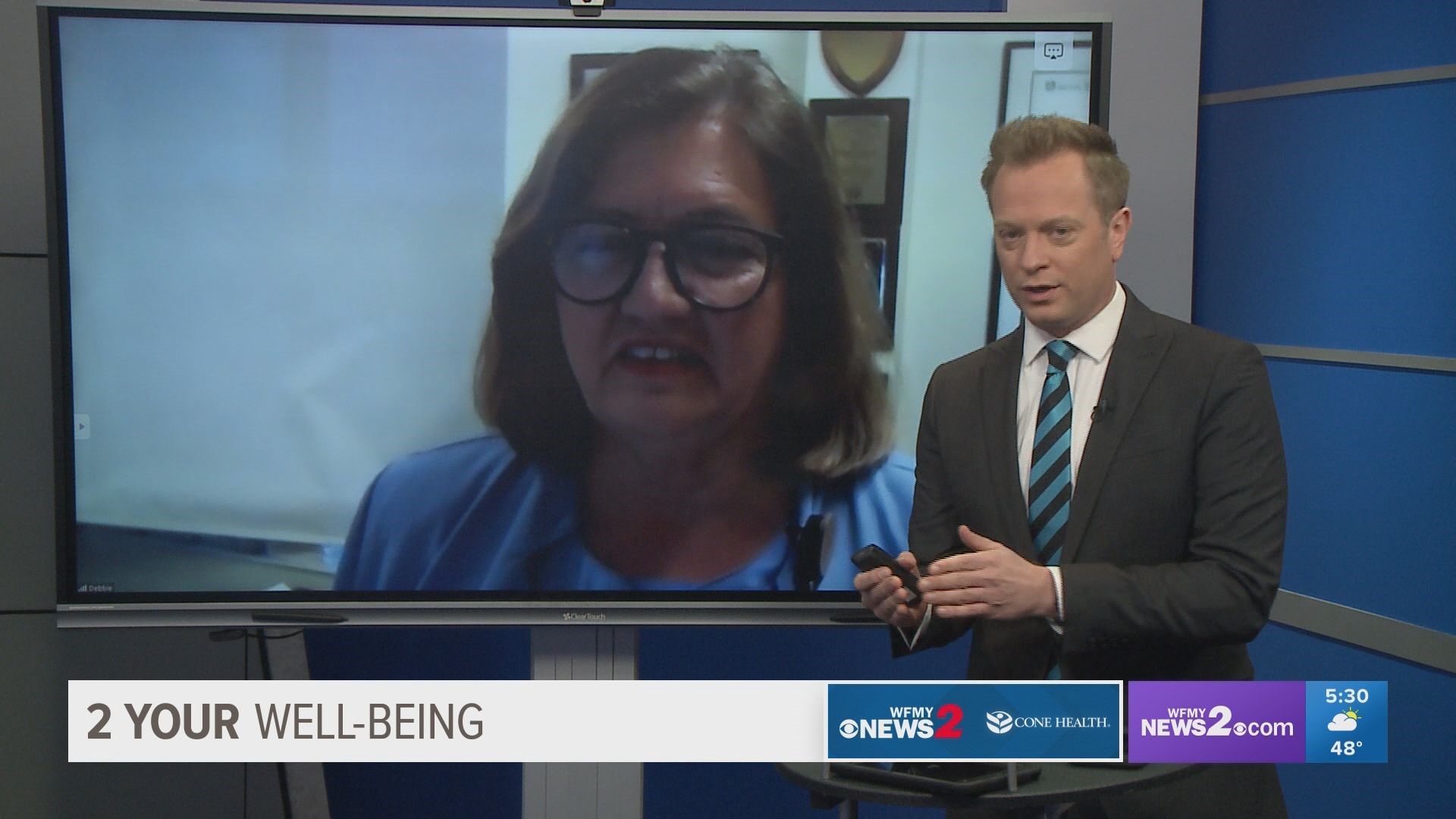GREENSBORO, N.C. — Throughout the pandemic, we have heard terms used over and over. How well do we understand what they mean and how to apply them? The difference could impact your chances of getting and spreading COVID-19, especially with the highly transmissible Omicron variant.
On this 2 Your Well-Being, Dr. Deborah Grant, the chief nursing officer for ambulatory and population health for Cone Health, reviews a few.
Isolation vs. quarantine
- Isolation separates sick people with a contagious disease from people who are not sickly.
- Quarantine separates and restricts the movement of people exposed to a contagious disease to see if they become sick.
Fully vaccinated
A person having received a primary series of COVID-19 vaccines.
You are up to date if you have received all recommended COVID-19 vaccines, including any boosters when eligible.
Boosters vs. third shot
People with compromised immune systems can get third doses. People without compromised immune systems -- but whose age, medical condition, and profession put them at risk -- can get boosters. Third doses and boosters are identical to their original dose ingredients and strength.
Breakthrough cases
An infection of a fully vaccinated person is called a “vaccine breakthrough infection.”
COVID-19 test
COVID-19 tests can detect either SARS-CoV-2, the virus that causes COVID-19, or antibodies that your body makes after getting COVID-19 or after getting vaccinated.
A viral test tells you if you are infected with SARS-CoV-2, the virus that causes COVID-19. There are two types of viral tests: rapid tests and laboratory tests. Viral tests use samples that come from your nose or mouth. Rapid tests can be performed in minutes and may include antigen and some NAATs. Laboratory tests can take days to complete and include RT-PCR and other types of NAATs. Some test results may need confirmatory testing.
Self-tests are rapid tests that can be taken at home or anywhere, are easy to use, and produce rapid results. COVID-19 self-tests are one of many risk-reduction measures, along with vaccination, masking, and physical distancing, that protect you and others by reducing the chances of spreading COVID-19.
COVID-19 long haulers
Although most people with COVID-19 get better within weeks of illness, some experience post-COVID conditions. Post-COVID conditions are a wide range of new, returning, or ongoing health problems people can experience four or more weeks after first being infected with the virus.
Cone Health offers a post COVID care center. Appointments are available through physician referral.



